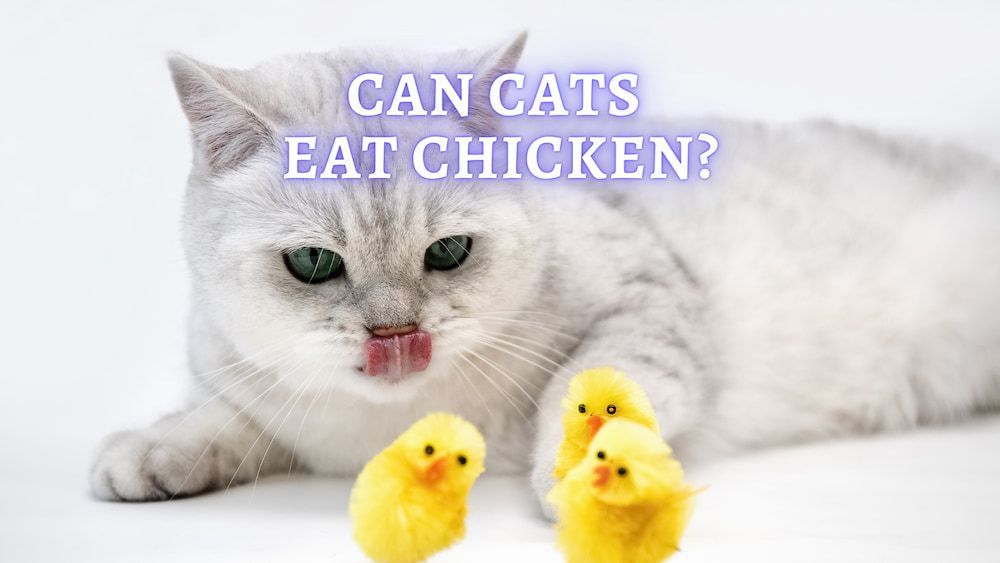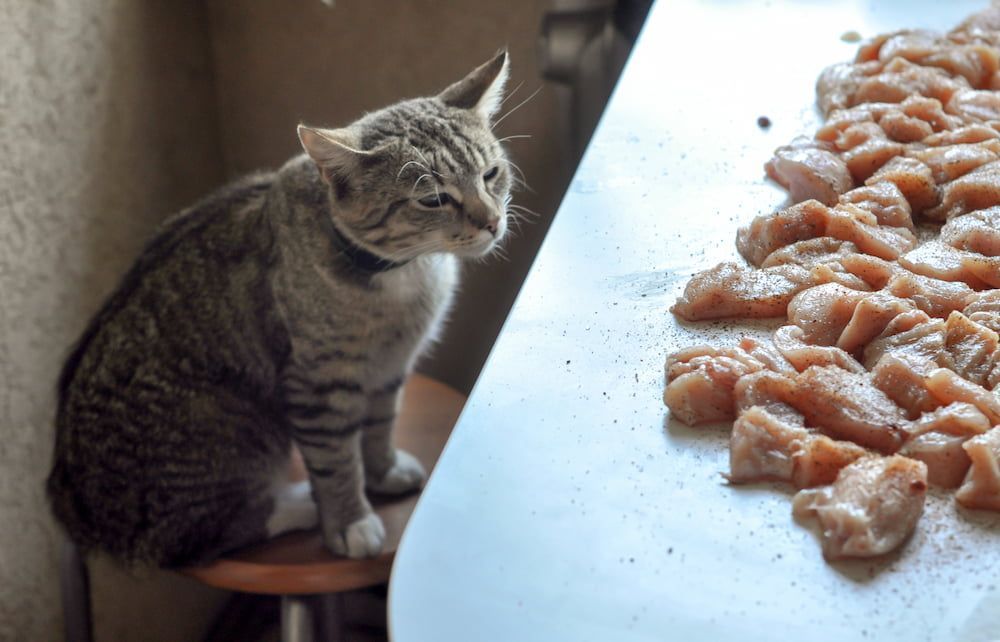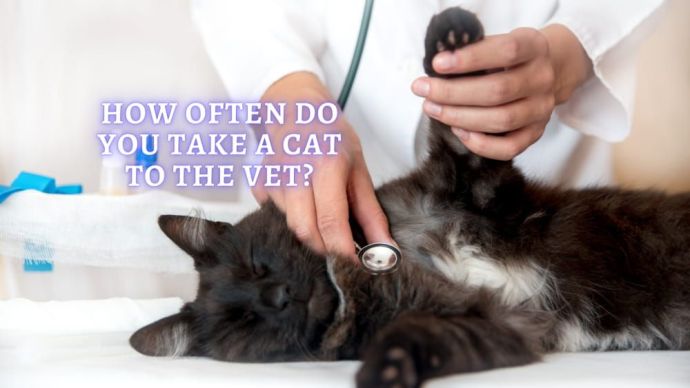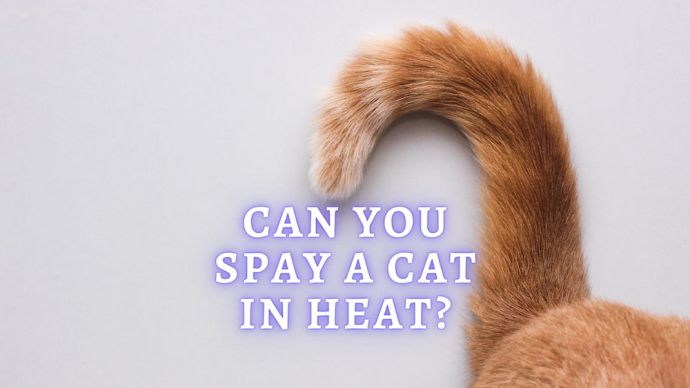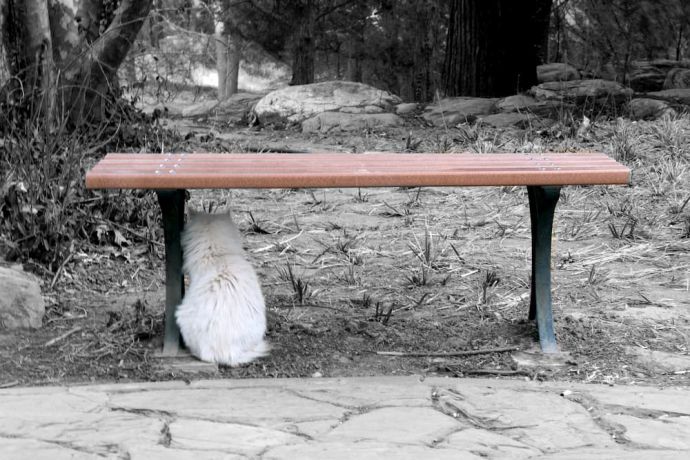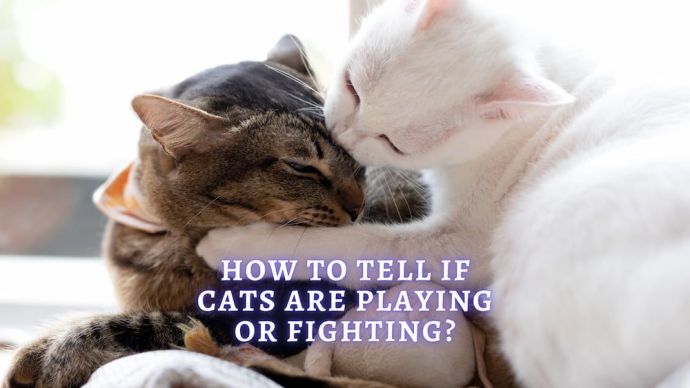Can Cats Eat Chicken? Is Chicken Safe for Cats?
Written by:
Author: Vicki Smirnova
Vicki Smirnova is a professional writer and editor who adores animals and helps readers get along well with their pets. She has been working in digital media for more than 5 years and has great experience writing content about lifestyle, including pets. Vicki specializes in dog health and nutrition, cat feeding, dog training. She is an aquarium lover and is passionate to write about fish care at home. Also, Vicki headed several websites and worked as a news editor.
View all 245 articlesLearn about our editorial process and veterinary review board.
Reviewed by:
Veterinary review
by Dr. Sara Ochoa
Dr. Sara Redding Ochoa is a veterinarian with many years of experience and higher education. During her time in veterinary school she was able to learn form some of the most well-known veterinarians from all over the world. Sara lives happily with her husband Greg and her babies Ruby the schnoodle, and Bam-Bam her bunny. Dr. Sara Redding Ochoa has a passion and love for animals that makes her a wonderful asset to our team.
View all 13 articlesLearn about our veterinary review board
Viewed: 68
Updated on: 08/11/2022
A cat is a purely carnivorous, a predator, feeding on small mammals (mainly rodents), birds and insects. Mammals are eaten whole, together with the entrails, bones and wool, while receiving the necessary substances: calcium, phosphorus, and mineral salts.
A balanced diet is the leading indicator of a cat’s health. This opinion is shared by the World Small Animal Veterinary Association (WSAVA), evaluating food quality on a par with such indicators as body temperature, heart rate and respiratory rate. However, it is not always clear how to feed a cat. Besides, a pet may have special needs, be picky about food, or react to necessary foods with allergies. The most suitable food for a domestic cat is a specially formulated food, dry or wet, that is as close as possible in terms of nutrient composition to natural food.
But if you decide to feed your natural pet food, you need to be very careful when choosing a diet. You can choose your own ingredients for natural nutrition. But to transfer a cat to homemade food, you will have to calculate proteins, fats and carbohydrates per serving, exclude allergens and regularly take an analysis for a deficiency or excess of vitamins. Most cats fed natural food are deficient in one or another vitamin or mineral.
What are the health benefits of chicken for cats?
Chicken meat can divides into two types: red and white. The breast fillet has a different structure of muscle fibers; therefore, it contains less fat and more protein and is low in calories. It is considered dietary, but veterinarians do not recommend feeding only white meat.
White meat contains more magnesium and has a low-calorie content (about 110 kcal), while red meat is high in iron, zinc and vitamins. Therefore, you can feed a cat with chicken, but not only chicken breast but also other parts of the carcass.
Chicken meat is considered dietary. Chicken meat contains vitamins necessary for any living organism, including A, groups B (B1, B2, B4, B5, B6, B9 and B12), C, D, E, K, PP, and others:
- calcium;
- magnesium;
- phosphorus;
- potassium;
- sodium;
- iron and other trace elements.
The rich composition of useful substances allows veterinarians to recommend feeding domestic cats with chicken meat – not only breast but also other parts. However, it is strictly forbidden to give the skin and tubular bones to the cat. The skin is poorly digested in the stomach of pets; in addition, it contains a lot of fat and, if eaten regularly, even in the healthiest cats, it will eventually cause problems with the liver, pancreas, and gallbladder.
Can cats eat chicken bone?
Bones can be dangerous. Tubular bones, when chewed, break up into sharp fragments. They can injure the intestines, so cats should not be given them. Be aware of these risks and check with your veterinarian before feeding your cat raw chicken or any other type of meat.
Can kittens eat chicken?
Chicken breast can be given to a kitten in combination with other types of meat and fiber, with the obligatory addition of a vitamin and mineral complex. The meat should not contain antibiotics, as well as many pathogens, particularly salmonella, E. coli, campylobacter, listeria and others. Before giving raw poultry meat to a kitten, you should consider whether you are sure that the purchased product is safe.
Some bacteria can survive even if you scald the meat with boiling water. You can destroy pathogenic microorganisms by freezing meat in the freezer for several days. So there is no definite answer to the question of whether kittens cats can eat raw chicken. It should be understood that the immunity of not all animals, especially small ones, can cope with pathogens that may be in raw meat.
Can I feed my cat chicken every day?
Even the best meat is not a complete diet, as it does not contain all the substances that a cat’s body needs. If you constantly give your pet chicken fillet, the pet’s body may not have enough of the essential nutrients. In nature, a cat eats prey along with the skin, entrails, blood, etc., which ensures the supply of all vitamins and minerals.
When compiling a diet for your cat, be sure to combine chicken with offal, red and white meat of other animals, adding a small amount of vegetables to the diet as a source of fiber.
This type of meat has been a component of most industrial feeds for several decades, and allergies most often occur precisely to those products that are constantly in the diet of felines. Owners should consider whether chicken parts can be given to a cat if their pet has a tendency to allergies. For example, chicken skin should be completely eliminated. It is poorly digested and high in fat, which can cause problems with the pancreas, liver, and gallbladder.
RELATED: Can Cats Eat Ham?
Alternative Healthy Snacks Ideas
DIY cat treats are a great alternative to store-bought treats. Only natural products are used for their manufacture, without dyes, flavors and not very useful preservatives. Depending on the taste of the pet, you can change the size and shape of the pieces and experiment with the ingredients.
You can cook chicken pieces for your beloved pet. For this, you need:
- Pour boiling water over the chicken fillet for 5 minutes.
- Dry with a paper towel, and cut into strips.
- Scatter the strips on the board and dry for 10-12 hours.
It is better not to store the finished straw for too long; placing it in the refrigerator is recommended.
Is Raw Chicken Good for a Cat?
You should know that raw meat can retain pathogenic bacteria if you often give your cat raw chicken. Birds are often carriers of salmonella. Salmonellosis is dangerous not only for cats, but also for humans. And more than a third of pets with strong immunity that have eaten salmonella-infected meat will forever remain carriers of the pathology. A weakened body of a cat (small kittens, elderly animals) may not be able to cope with the infection. The disease is always severe, accompanied by vivid symptoms:
- refusal of food;
- bouts of severe fever;
- elevated body temperature;
- apathy
- diarrhea, feces are dark, almost black in color and have a fetid odor, may contain streaks of blood;
- frequent vomiting with foam;
- cough;
- labored breathing.
Heat treatment solves this problem, so if you are not sure about the quality of the meat, then it is better to boil it. However, many cats refuse cooked chicken, preferring raw. The cat’s digestive system absorbers boiled meat worse, so it is recommended to pre-freeze the meat before giving it to your pet. This treatment will help destroy the parasites. For convenience, it is recommended to divide the meat into portions so as not to defrost a large piece of carcass. To get the right portion, you need to defrost before feeding.
RELATED: What Can Cats Eat: Recommendations from a Vet
What are the risks of a raw diet for cats?
According to the recommendations of veterinary nutritionists, 70% of an adult cat’s diet should consist of lean raw meat – the main source of vitamins A, B, D and taurine. However, suppose there is any doubt about its quality. In that case, raw meat can lead to salmonella and listeria loading with bacteria – the muscular part and offal must first be scalded with boiling water or frozen.
The proportional ratio of meat to other products should be 5:1. A serving will consist of 5 parts of meat and 1 part of sour milk or cereals. It is unsafe to increase the percentage of meat or plant products per serving without an obvious indication. An excess of animal or vegetable protein leads to diseases of the gastrointestinal tract and kidneys.
Remember that mixing industrial food with natural food is not recommended! Compiling a mixed diet is possible only with the proper knowledge and experience. Therefore, most recommendations for mixing natural food and drying it at home come down to a strict ban. Even if you divide the two types of food into different meals, you gradually introduce your pet to new foods. A mixed diet can only be introduced with the permission of a veterinary nutritionist and when drawing up an individual nutrition program.
READ MORE: Is Lasagna Bad for Cats?
People also ask:
Is cooked chicken bad for cats?
Boiled chicken is okay to feed to your cat. Fully cooking the chicken in boiling water with no seasoning, spices, oils or butter is great to give to your cat. Make sure you remove any fat or bones when feeding this to your cat.
Can chickens make cats sick?
Both cats and humans can become sick from infection with parasites and bacteria that live in raw meat. However, felines have a shorter digestive tract and higher stomach acid levels than humans, making it less likely that parasites spend enough time in the cat’s body to cause illness.
How much chicken can a cat eat?
The proportional ratio of meat to other products should be 5:1. This means that a serving will consist of 5 parts of meat and 1 part of sour milk or cereals.
What meat should cats not eat?
Fatty meats (lamb, pork and others) – increase cholesterol levels and leads to obesity. Raw, unprocessed meat – may contain helminth eggs, trichonella larvae (pork), pathogenic bacteria and microorganisms. Fried meat – is poorly digested and contains a minimum of nutritional value.
 Cat Veterinary Tips Cat Chewing Cardboard: Why Does My Cat Chew On Cardboard? Vet Advice
Cat Veterinary Tips Cat Chewing Cardboard: Why Does My Cat Chew On Cardboard? Vet Advice - 2550
- 0
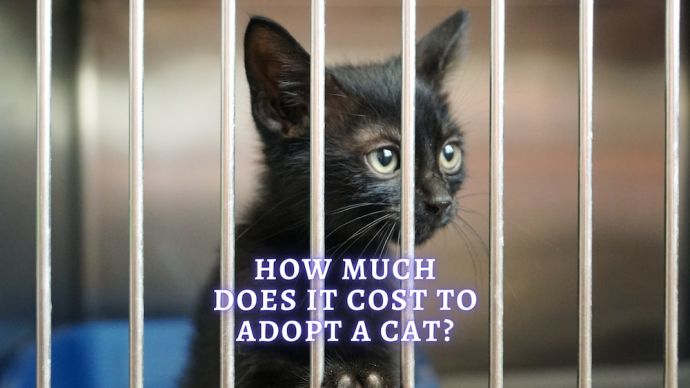 Cat Care How Much Does It Cost To Adopt A Cat? Costs to Consider When Adopting a Pet
Cat Care How Much Does It Cost To Adopt A Cat? Costs to Consider When Adopting a Pet - 62
- 0
 Cat Care Why Does My Cat Attack My Legs? 10 Reasons Why and What To Do About It (Vet-Approved Advice)
Cat Care Why Does My Cat Attack My Legs? 10 Reasons Why and What To Do About It (Vet-Approved Advice) - 45568
- 21
 Cat Veterinary Tips Cat Stomach Gurgling: Vet Advice on Why is Your Cat Stomach Gurgling?
Cat Veterinary Tips Cat Stomach Gurgling: Vet Advice on Why is Your Cat Stomach Gurgling? - 35344
- 4
 Cat Veterinary Tips My Cat Lost its Voice: Can Cats get Laryngitis? (Vet Advice)
Cat Veterinary Tips My Cat Lost its Voice: Can Cats get Laryngitis? (Vet Advice) - 23247
- 13









